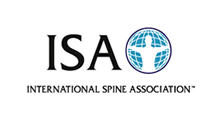
Spine Disorders
|
TREATMENT OPTIONS The best
care for failed back syndrome is to avoid creating it in the first place by
performing surgery on the right patients. Those who suffer from FBS should try
to avoid returning to the operating room and pursue other more conservative
treatment options. There are situations which require re-operation such as the
recurrence of a disc herniation or residual disc herniation which is still
compromising one or more nerves. Spine surgery is generally performed to
accomplish one or more of the following tasks; to remove something that should
not be present such as a tumor, to stabilize a painful joint or spinal segment
and to decompress (take pressure off) the spinal cord or a nerve that is
compressed (pinched). Back
surgery cannot be used to surgically remove pain. It can be used to modify the
structural relationship in the back so as to facilitate tissue recovery and to
take away what is believed to a significant source of tissue inflammation
and/or pains. Conservative
Treatment
Surgery
directed at the primary cause of pain such as:
PREVENTION The best
way to prevent neck and back pain and to prevent progressive spine compromise
is to become familiar with how your spine works and to become an active
participant in your spinecare. It is important to learn how to choose a
spinecare specialist and to recognize an efficient spinecare team. There are
many steps you can take and habits you can develop to better care for your
spine and prevent spine injury. It is also important that you learn more about
your spine disorder and become aware of the signs and symptoms that warrant
intervention and follow up care. Early detection and timely intervention is
generally associated with better treatment outcome. |
















